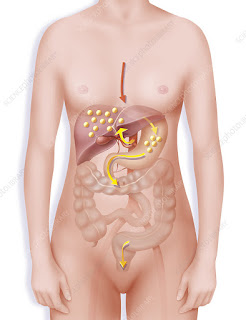Understanding Cholesterol: Dangers and Solutions for a Healthier Heart
Cholesterol is a waxy, fat-like substance found in every cell of the body. While our bodies need cholesterol to function properly, having too much of it can pose serious health risks, particularly to our heart health. In this article, we'll explore the dangers of high cholesterol and effective strategies for controlling cholesterol levels to maintain a healthy heart.
**The Dangers of High Cholesterol:**
1. **Increased Risk of Heart Disease:** High levels of cholesterol can lead to the buildup of plaque in the arteries, a condition known as atherosclerosis. This narrows the arteries and restricts blood flow to the heart, increasing the risk of heart disease, heart attack, and stroke.
2. **Hypertension:** Elevated cholesterol levels can contribute to hypertension, or high blood pressure, which further strains the heart and increases the risk of heart disease and stroke.
3. **Peripheral Artery Disease (PAD):** PAD occurs when cholesterol buildup restricts blood flow to the extremities, typically the legs. This can lead to pain, numbness, and difficulty walking, and in severe cases, may require surgical intervention.
4. **Increased Risk of Blood Clots:** High cholesterol levels can lead to the formation of blood clots, which can block blood flow to vital organs and cause serious health complications, including heart attack and stroke.
**Controlling Cholesterol Levels:**
1. **Healthy Diet:** One of the most effective ways to control cholesterol levels is by adopting a healthy diet low in saturated fats and trans fats. Instead, focus on consuming foods rich in soluble fiber, such as oats, beans, fruits, and vegetables, which help lower LDL (bad) cholesterol levels.
2. **Limit Saturated Fats:** Reduce your intake of saturated fats found in red meat, full-fat dairy products, and processed foods. Opt for lean protein sources like poultry, fish, and legumes, and choose low-fat or fat-free dairy options.
3. **Choose Heart-Healthy Fats:** Incorporate heart-healthy fats into your diet, such as those found in avocados, nuts, seeds, and olive oil. These fats can help raise HDL (good) cholesterol levels while lowering LDL cholesterol levels.
4. **Regular Exercise:** Engaging in regular physical activity can help raise HDL cholesterol levels and lower LDL cholesterol levels. Aim for at least 150 minutes of moderate-intensity exercise per week, such as brisk walking, cycling, or swimming.
5. **Maintain a Healthy Weight:** Being overweight or obese can contribute to high cholesterol levels and increase the risk of heart disease. Maintain a healthy weight through a balanced diet and regular exercise to support optimal cholesterol levels.
6. **Quit Smoking:** Smoking not only lowers HDL cholesterol levels but also damages the lining of the arteries, making them more susceptible to cholesterol buildup and narrowing. Quitting smoking is essential for maintaining healthy cholesterol levels and reducing the risk of heart disease.
7. **Limit Alcohol Intake:** While moderate alcohol consumption may have some heart-healthy benefits, excessive drinking can raise triglyceride levels and contribute to high cholesterol. Limit alcohol intake to no more than one drink per day for women and two drinks per day for men.
8. **Medication:** In some cases, lifestyle changes alone may not be enough to control cholesterol levels. Your doctor may prescribe medication, such as statins or cholesterol-lowering drugs, to help lower LDL cholesterol levels and reduce the risk of heart disease.
**Conclusion:**
High cholesterol poses significant risks to heart health, increasing the likelihood of heart disease, stroke, and other cardiovascular complications. By adopting a heart-healthy lifestyle that includes a balanced diet, regular exercise, maintaining a healthy weight, and avoiding smoking and excessive alcohol consumption, you can effectively control cholesterol levels and reduce the risk of heart disease. Remember, small changes can lead to big improvements in cholesterol levels and overall heart health.

.jpeg)


Comments
Post a Comment